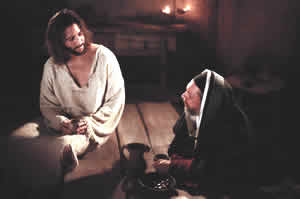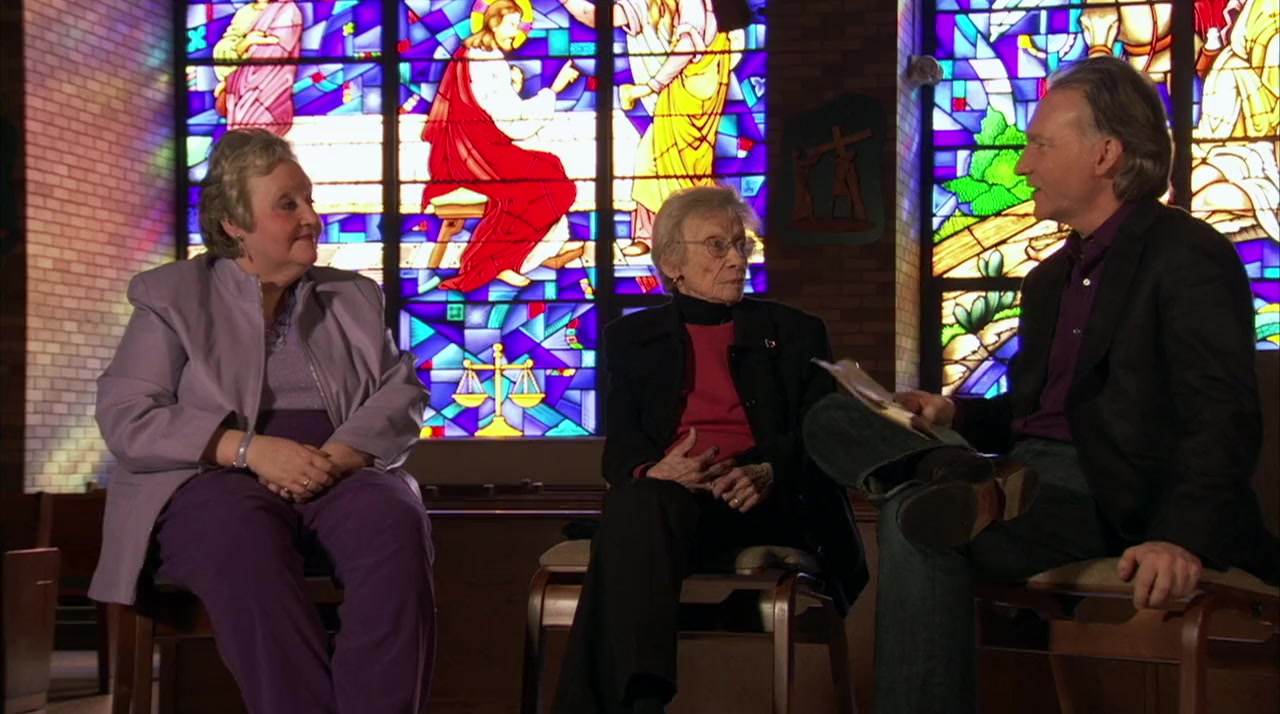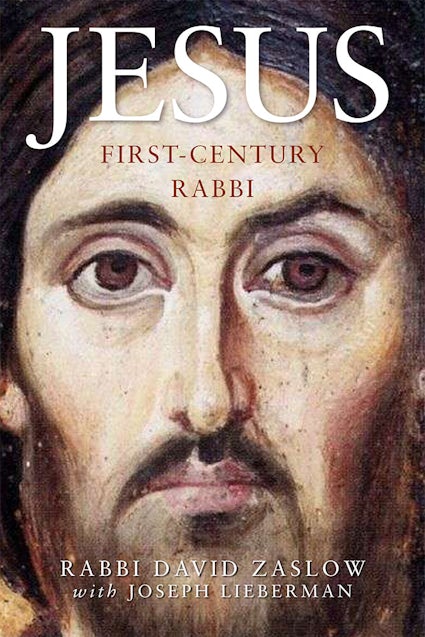A Rabbi Talks With Jesus
- I cannot conceive an argument with John’s Jesus,” Jacob Neusner once wrote, “because eternal.
- We are Jewish people who have a passion for sharing Messiah and embrace faith in Jesus as a viable and thriving expression of Jewish life.
- All these words were used synonymously in the Gospels to reflect the kind of teaching conducted by a rabbi with his. Talks about believing in Jesus.
Neusner, J., A Rabbi Talks with Jesus. McGill‑Queens University Press, Montreal, 2000. Otto, R., The Kingdom of God and the Son of Man.
Da Vinci Code. Not only is this false, I believe that it is a too great of a compliment to Dan Brown.
Instead, Jesus of Nazareth is the first part of Ratzinger’s magnum opus on Christology – a “biblical Christology” that seeks to base itself on the accounts of the Four Gospels. Pope Benedict’s employs phrases like, “implicit Christology,” or “hidden Christology,” in order to emphasize the high view of Christ contained in the Gospel accounts of Christ. Perhaps it could be said that Ratzinger’s career as Prefect of the Congregation for the Doctrine of the Faith was in fact a career dedicated to the defense of Catholic Christology. Ratzinger, now Benedict, believes that a proper understand of Christ leads to a proper understanding of everything. He is Augustinian, which is to say that he is rooted in a tradition that emphasizes the unique revelation of Christ to mankind. Good Christology leads to good liturgy, good ecclesiology, etc.
The Pope’s book is a personal conversation between “Ratzinger” and the “historical Jesus” movement of scholarship characteristic of the 20th century. Benedict drives in the last nail of the coffin containing the theory that the “historical Jesus” was a simple Jewish teacher who was only later deified by the Church into a cosmic redeemer. The Holy Father demonstrates that the Gospels do indeed present the historical Jesus as the cosmic redeemer of mankind.
The Holy Father not only dispels the notion of “the true historical Jesus apart from the Church,” he also cuts down any attempt to recast Jesus as a liberalizer of Judaism or a prophet of social progress. These two aberrations can lead to anti-Semitism (something ingrained in his German conscience) and to totalitarian regimes of materialism (something ingrained in his Catholic conscience).
Perhaps the most interesting section of the book is the Holy Father’s interaction with Rabbi Jacob Neusner’s book A Rabbi Talks with Jesus. The Holy Father praises Rabbi Neusner for his willingness to engage the words of Christ from a rabbinical point-of-view. Obviously Rabbi Neusner does not accept the claims of “Rabbi Jesus” but Neusner does bring out the depth of Christ’s message, which is edifying for the Christian reader. Neusner confirms for the Holy Father that Christ was not a liberalizer of Judaism or a social progressive. Jesus was a rabbi making bold claims. Neusner recognizes that Jesus elevates himself not only above the person of Moses but also above the revealed Torah. A Pope and a Rabbi walk into a bar, and the Pope says to the Rabbi, “Way to go! You have done my work for me. You have revealed the radical Christology of the Gospels from a Jewish perspective.”
It should be remembered that Jesus of Nazareth is only the Holy Father’s first volume, beginning with the baptism of Christ in the Jordan and ending with His transfiguration, thus reviewing the first half of Christ’s public ministry. The Holy Father is likely working on its sequel at this very moment. We should pray that the Holy Father has the length of days and length of wit to finish this daunting task. The publication of Jesus of Nazareth is momentous. Here we have an insightful theologian proposing a “biblical Christology” against the errors of the 20th century. And it just so happens that this insightful theologian is the Supreme Pontiff of the Catholic Church. Deo gratias.
This year, I’m participating in Better Together Day (Tuesday, April 14th) for the third time and I couldn’t be more excited. A lot of movements have a signature “day of action” to promote their cause, but Better Together Day is special to me because it’s a moment to reaffirm my commitment to interfaith cooperation. I am particularly excited about this year because Interfaith Youth Core is asking us to really engage with someone who believes differently than I do, to talk to a human. It seems like such a small thing, but I really think that honest, personal interactions across difference gives us the foundation for positive relationships.

I am especially excited about the pledge for college students across the country to not only meet someone of a different religious or non-religious background, but to talk about something that inspires them, because doing just that has really strengthened my commitment as a Christian to my own faith.
While I definitely grew up in a very diverse church (five of the seven continents were represented among the congregants), growing up I wasn’t really exposed to many different religions. Sure I had the occasional atheist friend or Catholic friend (in my upbringing Catholicism might as well have been a different religion from the Christianity I knew), but really I wasn’t exposed to many different kinds of beliefs. In fact, it wasn’t until college that I met a Jewish person – at least so far as I knew.

For most of my life I really believed that Christians had the monopoly on “goodness.” And by that I mean I thought in order to be motivated to serve other people, and really truly love other people, one must know Jesus first. For instance, I didn’t understand how perhaps an atheist could have a strong moral code. In light of this, naturally I never really imagined that I could learn about my Christian faith through relationships with non-Christians.
That is, until I met Rabbi Mark Goldman.
My junior year of college, as a religion/philosophy major and youth ministry minor, I met Rabbi Mark when I enrolled in the Intro to Hebrew course at Flagler College. Having never met a rabbi before I was indeed excited and definitely curious. I even had a brief thought, “this is my moment to convince a Jewish leader that Jesus, in actuality, was and is the messiah!” Of course I was eventually shocked to find out Rabbi Mark, a Reform Jewish rabbi, probably couldn’t care less about who was or is the messiah considering he himself wasn’t expecting one, but I digress.
Rabbi Mark was the most engaging professor or teacher I had ever had. In his class he spent more time promoting dialogue than he did actually teaching Hebrew, or so it seemed. It was evident that his relationship with his students was more important to him than the knowledge they gained. He instead seemed to be teaching us how to communicate with each other, and how to communicate across difference. He patiently answered all of our questions about Judaism, no matter how small or seemingly insignificant – and he always did so with humor. Rabbi sang little songs in class in order to teach us more about Hebrew. For example, he would pull a young woman from the class up front and say “this is a Kalah,” then have us repeat - “this is a Kalah.” Then he would say, “a very lovely bride!” (a very lovely bride). Then he would hold up an imaginary piece of bread and say, “this is a Challah,” (this is a challah), “ a yummy piece of bread” (a yummy piece of bread), “Now let’s go eat some bread!”
Before building my relationship with Rabbi Mark I had always assumed that everyone of every religious or non-religious background was interested in convincing others that their perspective, or their faith, was the Right faith. Rabbi Mark, instead, seemed more interested in making me a better Christian, rather than making me a Jew. Rabbi regularly brought up Jesus in his class as a way to connect to his Christian students, but not in a cheap way. He often mentioned how he admired Jesus because of what a great Jew he was; how Jesus could really be lifted up as a great example of Judaism embodied. I often took away from this that in the same way Jesus was a great Jew, and Rabbi strove to be a good example of Judaism himself, I in the same way should strive to be a good witness to Christianity.
As I got to know Rabbi Mark, it became evident to me that he was more like Jesus than any Christian I knew. I found this baffling. I always knew Jesus was deeply devoted to God, and loved others more than is probably humanly possible – but Rabbi Mark embodied these two things more than anyone else I’d known. If it seemed like someone in the class was having a difficult time in their personal life, he strayed from the lesson in order to unpack the student’s troubles and call on the class to help support that student. It also was not uncommon for us to stray from the Hebrew lesson because Rabbi spent so much of the class essentially asking us our life stories. It was evident that he really want to know us for who we were. Amazingly, he somehow turned these life stories he heard in class into Hebrew lessons. I couldn’t help but think of how Jesus so often in the Gospels stopped what he was doing in order to care for those who needed him (think of the hemorrhaging woman who touched his cloak). Seeing Rabbi as an example of Christ’s love created a challenge for me. If Christians had the monopoly on righteous living, how could it be that a non-Christian reminded me more of Jesus than any actual Christians I knew?
One Hebrew term in particular that Rabbi taught me that really informed my thinking about my own Christianity is “Tikkun Olam.” Tikkun Olam means “repairing the world,” and Rabbi said that instead of waiting for a messiah, he believed that it was up to individuals and communities to take the actions necessary to create more peace and wholeness in the world. When he talked about Tikkun Olam I often thought about the Kingdom of God and how as Christians we believe that the Kingdom (when the world will be at peace, healed of all oppression, and where all people are equal, etc.) is both here and not here. Through Jesus the Kingdom is present in the world, but will not be here in its fullness until Jesus returns again. As Christians it is our responsibility to live as though the Kingdom is here, and to create a world that reflects the Kingdom of God. The action centered concept of Tikkun Olam taught me to focus more on the “present Kingdom” and creating a world that reflects that Kingdom - rather than solely on the “coming kingdom.”
In light of this, my commitment to Christianity and to Christ was deepened. It may seem counterintuitive, but Rabbi Mark inspired me to be more like Christ – to be more deeply devoted to God and to love others more unconditionally. His understanding of his faith, made me want to have a deeper understanding of my own faith as a Christian. Through that class I also engaged with Jewish students on a relational level. Their knowledge of their religious history inspired me to better know my own (truth be told I was pretty clueless). Through these relationships I felt more accountable to my identity as a Christian.

Up until this point I had done a really great job at being in peace with my brothers and sisters in Christ, but hadn’t made much effort to build relationships otherwise unless it meant trying to convert others to Christianity. While I still believe evangelism is important, I also believe building relationships with people who believe differently is important for Christian living.
Hebrews 12:14 says, “Make every effort to live in peace with everyone and to be holy; without holiness no one will see the Lord.” Rabbi Mark’s holiness (the way in which he was “set apart”) enabled me to see the Lord in a different way, and I knew that as a Christian it was essential that I do that for others.
Talking to people about religion is challenging. It is especially challenging to talk to people who believe differently than you about the topic of faith. But real peace can also be challenging. I’m not talking about the peace we keep by avoiding conflict and hard issues - I’m talking about the peace we create by learning how to be in relationships with people of other faiths (or non-faiths). Christian love is a relational love, it is unconditional, it is supposed to be Christ-like. Being in relationships with people who are similar to us is easy, but we more fully live in love when we learn to care for others who are different from us. Think about how different we are from Jesus - but he reaches out to us and meets us at our difference and embraces us fully. We need to do that for others.
I am so excited about Better Together Day on April 14. It is my hope for you, and for everyone, that you meet your own Rabbi Mark, and enrich your own understanding of yourself, the world and others through talking to a human – through engaging with someone who believes differently than you. Remember - don’t just keep peace, create it.

A Rabbi Talks With Jesus Pdf
The content of this blog reflects the views of its author exclusively. We'd love to hear your thoughts. Please share your comments on IFYC's Facebook page.